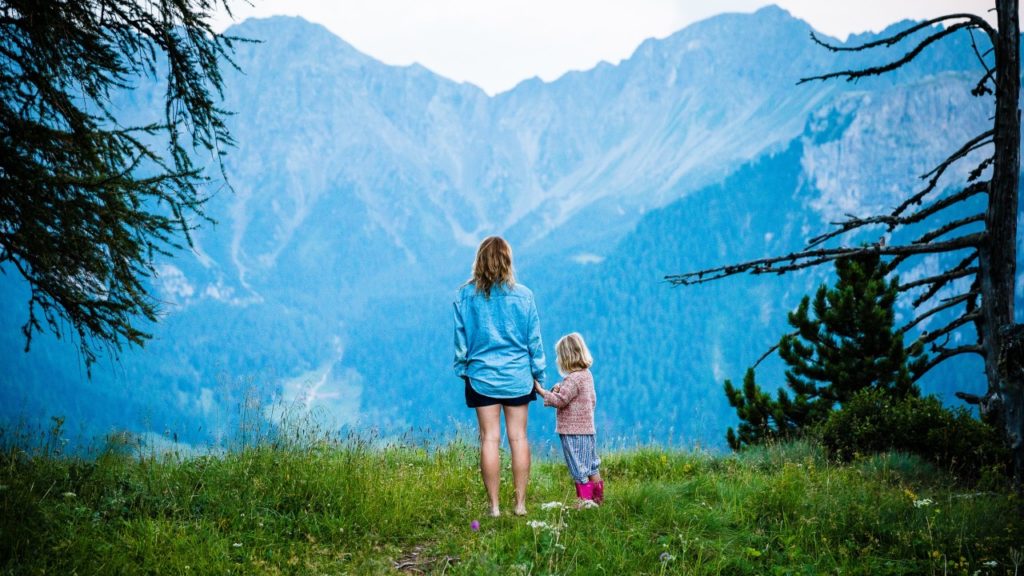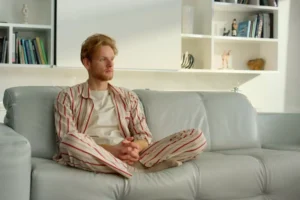In college, Jillian Kellenberger wanted to do more than pass her tests and have fun on Friday night. As she explored how she could make a difference for others, she learned about foster care and the vulnerable children and families in her own community.
She began volunteering with The Forgotten Initiative (TFI), an organization that serves the foster care community by spreading awareness and meeting tangible needs. Today at 30 years old, Jillian is part of the national TFI team, writes for the TFI blog, and has joined the ranks of foster parents as a single mom to her three-year-old foster daughter.
There are at least 400,000 children in foster care in the U.S., with over 18,000 in Jillian’s state of Illinois. Many of us do not realize the significant needs of this community that is often in our own neighborhoods, churches and daily circles. I asked Jillian about her unique experiences as a single foster mom, how others have walked this journey with her, and what God has taught her in the process.
1. What role(s) can single adults fill for at-risk kids?
I’m going to take it a little further and say, “What role can single adults fill for the foster care community?” I’ve found that it’s easy for us, as caring people, to focus on the kids. Yes, foster care affects hundreds of thousands of kids, but there are so many other people involved in the foster care community. Surrounding every child we love on, there are adults. These adults need our care, compassion and love, too.
First, research and learn more about your local foster care community. What foster care agencies are in the area? What ministries exist to support the foster care community? Second, grow your awareness of foster care. Read blogs, listen to podcasts, ask questions of people who have a better understanding. Third, reach out to foster parents in your church and ask them how you can support them — whether with meals, babysitting or tutoring, picking up groceries, etc. Come alongside those families already in the trenches. (Editor’s note: Focus on the Family’s Wait No More website is a great place to start for resources and information.)
2. Some might argue that a two-parent home is best for a child from a traumatic background, so single adults should not consider fostering or adopting. As a single foster parent, how would you respond?
I would agree — a two-parent home with both a mom and dad is best for all children. God designed family roles intentionally with a specific purpose for each. But our world is also full of brokenness, and as His people we need to step in where and when we can to care for the vulnerable. God’s Word does not say to care for the vulnerable only if you’re married.
It’s important to have both parental roles represented in a child’s life. For me, I have multiple godly men who pour into my daughter regularly. My brother-in-law specifically has taken a father-figure role for her.
3. How have others in your community come alongside you in your foster care experience?
Prayer: From the day I made the choice to foster, I’ve had people praying for me and the kiddos I would one day love as my own, either temporarily or forever. The second I got a call to take my little girl, I had people covering her, her mom and me in prayer.
Encouragement: God has blessed me with family and multiple friends who speak truth, wisdom and encouragement into me whenever I need it. When I can’t take words in but need to vent, when I need to say all my thoughts and feelings out loud to process, there is no judgment, there is no condemnation — just listening with love and compassion.
Tangibles: My foster care journey has never lacked in the “stuff” I’ve needed. While I was being licensed, my friends and family threw me a foster care shower and I received everything I would need for caring for any child in the age range I was licensed for. Once I got my first placement, things continued to arrive at my door for her.
I’ve never felt unsupported on this journey. Not once, even as a single parent. I know my support system is available whenever and however I need it. They have made themselves available and continue to voice their support.
4. Even though you knew more than most before taking the plunge into foster care, what has been especially difficult about your experience?
What’s hard for me personally is how little say foster parents have. We are the people with these children every day. We are taking care of and advocating for every one of their needs. We see the good, the bad and the ugly. Often, we get to a point of knowing these kids better than anyone else. We know their favorite food, their personality inside and out. We know what is in their best interest and what is not, and yet we rely on a court to make decisions for their today, tomorrow and forever. This is hard.
But ultimately, I remind myself this is the truth for every parent — no parent has final say on decisions for their child. Only God has that authority. God holds each one of our children, even our children in foster care, in His hands. His plans are good for each one of these young lives He has intentionally created, formed and brought into this world for a purpose. So we trust Him and continue to surrender to His plan for each of our kiddos’ lives.
5. What has your foster care experience shown you about the gospel?
The Father’s never-ending pursuit of His children., Even in the hardest moments, He is present.
Foster parenting has been the hardest journey I’ve ever walked, but I expected it to be. Years ago, when I told someone I was planning to foster, they told me how hard it would be. I agreed and shared how this actually excited me rather than instilled fear in me. I’ll tell you what I told that person and what I still believe to be true: When we choose to do crazy, hard, emotional things that are 176 percent out of our hands, we have to rely on Jesus. When we rely on Jesus, we grow. We grow nearer and nearer to Him. It’s a great gift none of us want — to go through hardship — oh, but the outcome is so, so sweet.
Copyright 2020 Lauren Dunn. All rights reserved.












